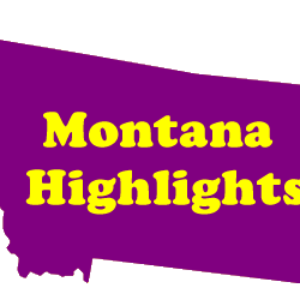By Jose Bustos
Saltsations is a different concept in whole body therapy, using salt in a mist form without drugs or unnatural substances, that cleanses by opening one’s breathing by a method now being accepted by a number of therapists. As so many individuals are now concerned about the harmful effects that drugs can cause to one’s body, Saltsations is an alternative, a natural one, to whole health individual care.
Linda Champlin has brought the treatment to Billings with Saltsations Wellness Center at at 848 Main Street Suite 18.
Champlin meets you with a ready, warm and genuine smile upon entering her wellness center reception area. You are also met with subtle pastels, warm yet cool, heavenly hues of blue, pink, mellow yellow, tender orange, comfy green. Colors in every room, for every scene, a room for your emotions, blessed with a subdued natural sheen.
The atmosphere impacts a gentle, un-hurried feeling away from the world, from the problems and stressors of everyday life. After a Saltsations session, I felt taken away, a sensation of swathing in serenity, a feeling of floating in near total repose.
Your eye is naturally trained to a tree, artistically blended into the wall, seemingly three dimensional at first glance, climbing into the ceiling, giving the impression of reaching above into a cloud. The tree is complemented by various soft, natural pastels, blended elegantly into the flow of colors throughout the salon.
Another room is painted with wood hued drapes imprinted with seasoned, well-aged wood, the folds, giving the appearance of an invitation to open the doors of the rustic barn depicted in the art.
There is a room with an infrared spa, surrounded by another wall mural of a fenced wooden walkway leading into a forest, the fence itself giving one the feeling of reaching out to hold onto it as you take your first step into a forest .
Billings has always been considered home for Champlin, as her parents grew up in Billing. She speaks fondly of them, and reminisces upon stories of her great grandparents who traveled by wagon train from the Ozarks Mountain region in Missouri, Kansas and Oklahoma at the turn into the 20th Century.
One of her grandfathers was conscripted into the Army during WW1, but shortly thereafter, was recalled to return to Montana due to the influenza deaths of 1917.
Her family lived in several different locations, as her father was a welder. He earned a degree as a Metallurgical Engineer for Bechtel International Construction and was given a full-time position in Colstrip, which allowed Champlin to graduate from Colstrip High School. Champlin then attended college at MSU Bozeman. It was therethat she met her future husband, Orin.
Champlin then transferred to Eastern Montana College in Billings so she could further her studies and help with her aging grandmother. She graduated with a Bachelor of Science degree in Human Services, with a focus on Music Therapy. Champlin accepted a job in Boston, MA and achieved her dream of a Master’s Degree in Counseling Psychology.
Then, as it happens to so many of us, who have ventured outside of Big Sky Country, Montana called her back. She moved back to Billings in 1991, and married Orin in Bozeman. Orin was in the National Guard, then transferred into the active Air Force and she accompanied him to deployments in Germany, Nebraska and Missouri. Prior to Orin’s retirement from the Air Force, Linda worked as a certified dyslexia tutor and licensed clinical professional counselor.
In accompanying Orin on his various Air Force deployments, Champlin developed breathing problems and could not find a satisfactory solution. She then heard about the Salt Cave in Maplewood, Missouri. She and Orin visited the Salt Cave, and she experienced a remarkable and positive change in her breathing shortly thereafter, and that is when she developed an interest in salt therapy. Still, without any thought of developing her own salt therapy business, the Covid pandemic arrived in 2020 and Linda contracted pneumonia. That bout of illness and her earlier visit to the Salt Cave, prompted Champlin to seriously think about opening her own therapy business.
In one of Saltsations’ rooms there is what appears to be a mere twenty inches by thirty-six inch mini water bed, but it is actually a water massage unit. When turned on, it begins to vibrate, and is in essence, an ocean-like wave relaxing back massage. My wife, Zee, and I had to try it. You feel like you’re riding on waves, it vibrates, and seems to be bubbling up on and into your spine. The word relaxing does not suffice for the feeling of completely letting your body melt into it. It nearly put me to sleep, but of course I’ve been known to sleep in the dentist’s chair.
Zee experienced noticeable relief from a chronically stressed trapezius muscle.
I sat in on Salty Air Drive, one of Saltsations therapy rooms on a Friday afternoon. Linda had me sit on a choice of different chairs, and brought me a glass of ice cold water, mentioning that the therapy may make one thirsty. After sitting for a couple of minutes, tranquil and not knowing what to expect, listening to the gentle purr of the salt mist generator, I experienced a slight taste of salt on my lips. Sipping on the cool water, I just sat and observed the comforting natural light coming through the window. Sooo, relaxing, trying to think of something, anything to bide my time…
The next thing I knew was Linda waking me up, as I had melted into the chair and had fallen asleep and was told that 45 minutes had passed…really? As I stepped out of the therapy room into the reception area, I noticed that the air in the reception room seemed even more wholesome and natural. My breathing seemed easier, my sinuses clearer and my entire body completely relaxed and rubberized (a term I’d like to use for this therapy as nothing else comes to mind to articulate this most relaxing experience).
Saltsations is an event that is hard to explain to the reader. It must be your own experience, your own adventure. Saltsations is located in the Frontier Insurance Solutions complex in the Heights and sessions are primarily by appointment. Linda can be reached at 406-647-3179




